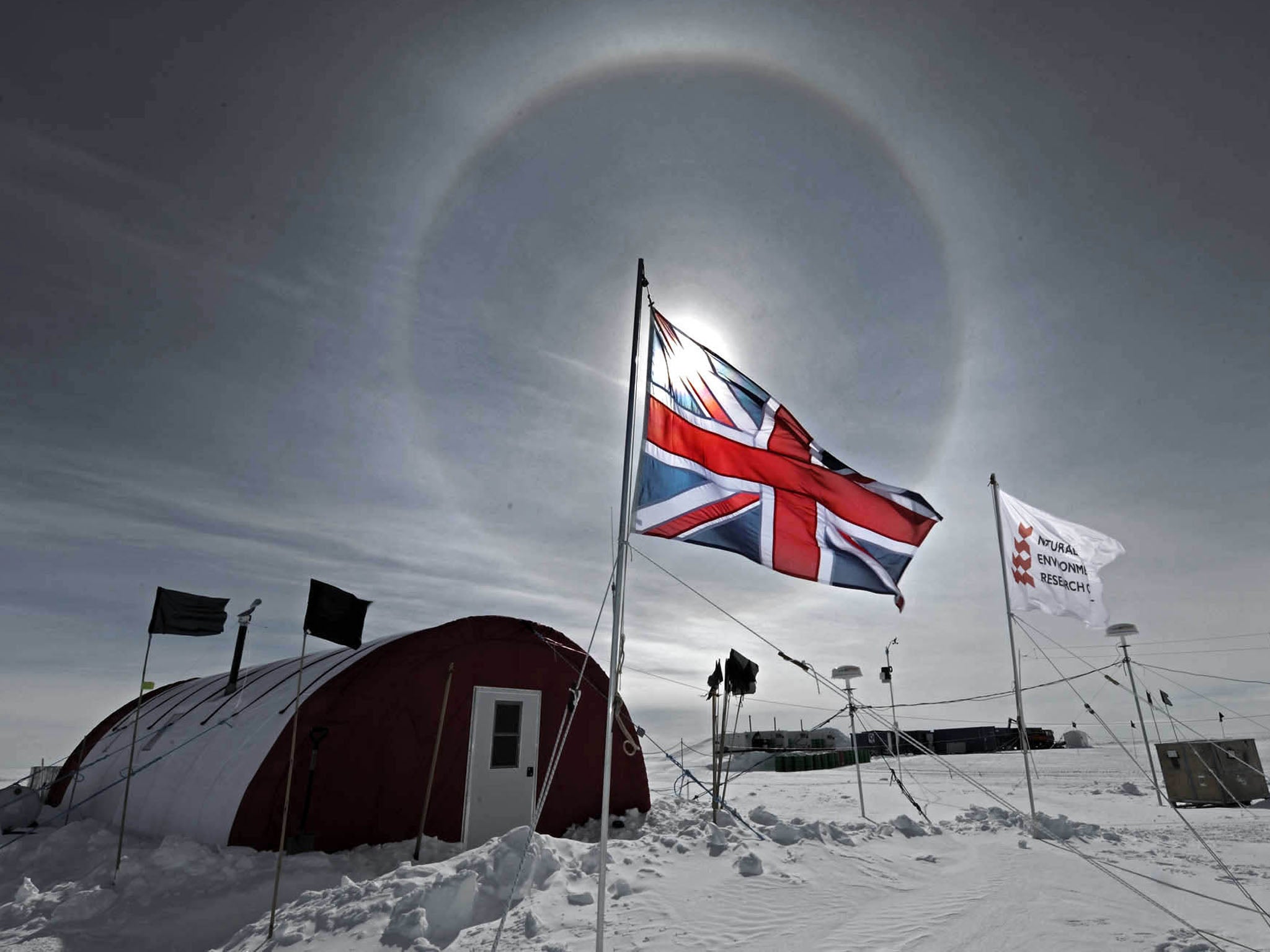Antarctica team to drill in search for life two miles under ice

British scientists plan to start drilling in Antarctica totday in their quest to discover whether life exists in a lake that's been isolated for hundreds of thousands of years 3 kilometres (2 miles) below the ice.
The researchers will use a drill that pumps hot water at high pressure to bore through the ice. After firing the boiler's burners Tuesday, they'll begin test drills before drilling down to the lake by Sunday, said Chris Hill, program manager at the British Antarctic Survey for the project at Lake Ellsworth, near the center of the West Antarctic ice sheet.
"Since that boiler fired up, the mood's been pretty good," Hill said Tuesday in a satellite phone interview from the drilling site. "We have to wait on this like expectant fathers."
The 8-million-pound ($13 million) plan is the culmination of 16 years of planning. Researchers aim to recover water and sediment samples from the lake to determine whether life exists there and shed clues on the past climate of Antarctica.
"The most likely organisms to be found will be bacterial — they're everywhere," David Pearce, a microbiologist at the program said in an interview in October, shortly before heading to the southern continent to begin preparations. "If there's nothing there, that will tell us the limits for the existence of life on Earth."
After testing the drill works, the researchers plan to bore down 300 meters where they'll create a water-filled cavity to help balance the water pressure between the lake and the borehole. Then, they plan to make a separate hole from the top, through the cavity and down to the lake.
Once the drill is removed, Hill said "the clock starts ticking" and the researchers have just 24 to 30 hours to recover samples before the hole refreezes and becomes too narrow to safely lower instruments.
First they'll lower a sterile ultraviolet lamp down to irradiate any life around the edges of the hole, Hill said in a briefing in October. Then, they'll send down a probe with 24 canisters to collect water samples from different depths.
Finally, a sediment corer will be dropped down to recover a length of sediment from the lake bed. By analyzing a column of sediment, scientists can tell whether the ice sheet has retreated in the past, because of the presence or not of fossilized marine organisms in the silt.
"We'll probably reach the lake around Sunday, retract the drill by Monday and start deploying the instruments late Monday or Tuesday," Hill said.
As soon as the first probe returns to the surface, researchers will be able to study some of the samples to gauge whether life was found, said Hill. The rest will be sent back by sea to Britain, where they'll arrive about May for study in laboratories across the country, with the first scientific papers likely by late 2013 or early 2014, he said.
If conditions allow, they'll re-drill the hole and lower a duplicate set of all the instruments down. Hill said that the five-day weather forecast predicts low winds and some cloud cover. Temperatures in the Antarctic summer are currently around minus 18 degrees Celsius (0 degrees Fahrenheit), falling to minus 35 degrees with wind-chill, he said.
Lakes exist deep below the Antarctic surface because the pressure exerted by thousands of meters of ice drives down the freezing point of water. Lake Ellsworth is one of at least 387 known sub-glacial Antarctic lakes.
The drilling program is the culmination of an ambition dating back 16 years, when the project's principle scientist, Martin Siegert, a glaciologist now at the University of Edinburgh, began searching through radio echo-sounding data to uncover Antarctic lakes, according to Hill.
Lake Ellsworth was identified as a potential target for exploration about eight years ago. The consortium of British universities that's carrying out the program secured the funding they needed to begin preparing an expedition.
A Russian team on Feb. 5 penetrated more than 3.7 kilometers of ice to reach the waters of Lake Vostok, another body of water underneath Antarctica. That group collected samples of "fresh frozen" water, according to the country's Arctic and Antarctic Research Institute. They have yet to publicize any findings.
Join our commenting forum
Join thought-provoking conversations, follow other Independent readers and see their replies
Comments
Bookmark popover
Removed from bookmarks